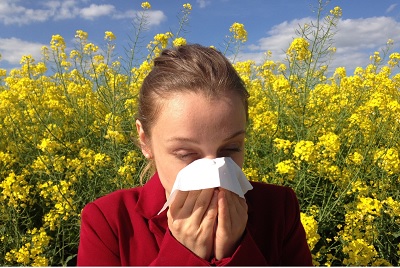
Table of Contents
How to manage colds and allergies with medicine
You know that awful feeling of “coming down with something”? You are all stuffed up, coughing or sneezing, have a sore throat, and cannot sleep at night? Like millions of others, you ask, “What is the best medicine for allergy and cold relief?” Allergy and cold medicines include antihistamines, decongestants, combination drugs, corticosteroids, and more.
Do you have a cold or allergies?
They may look similar, but colds and allergies have different causes. Viruses that enter the human body cause colds and flu, which are contagious; allergies are a different story. When the body mistakes dust and pollen for germs, it attacks them, causing the immune system to be overactive. This is when the body releases chemicals called histamines, just as it does for fighting colds. Unlike colds, allergies are not contagious, but people tend to inherit them (WebMD).
Allergies affect your nose, throat, sinuses, and upper respiratory tract. Another difference is that cold symptoms come on fast and taper off quickly, while allergy symptoms are seasonal, and can last for long periods.
Remember: It is a good idea to see your family doctor who can diagnose if you have the common cold or allergies with cold-like symptoms.
What medicines can treat the common cold?
Many of you have tried over the counter medicine for the common cold or an allergy, or a combination of both. Typically, these drugs are classified as antihistamines and decongestants.
What are Decongestants?
Decongestants give short-term relief, lasting for 3 to 4 hours, although some can be long-acting (8 to 12 hours). They work by reducing the swelling in the nasal passageways and improving the flow of air. Although decongestants do not cure the root cause of the condition, you will be able to breathe a lot easier.
Decongestants treat nasal or eye congestions, including:
Most decongestants are available over the counter (OTC) at any pharmacy and sold in the form of pills or nasal sprays. Avoid using the sprays for more than 3 days, or you may have a stuffier nose (Drugs.com).
Are there any side effects?
It is better to take decongestant pills during the day as they may keep you awake, but the nasal sprays can be used at night. They can also increase blood pressure. If you have high BP or heart condition, ask your doctor if you should try cold medicines without decongestants (WebMD).
What are Antihistamines?
Antihistamines treat allergies, as well as cold and flu symptoms. They work by blocking the histamines, which make your nose itchy and swollen. There are different types of antihistamines, some of which help stop sneezing and runny nose (Drugs.com).
Antihistamines are very effective for treating allergic reactions, including:
- Itch
- Rash
- Red and watery eyes
- Runny nose
- Sneezing
- Inflammation (redness)
- Edema (swelling)
This makes antihistamines very effective in the treatment of:
- Allergic rhinitis
- Colds and Flu
- Food allergies
- Hay fever
- Hives
- Hypersensitivity to drugs
- Insect bites
- Stings
Are there any side effects?
The most common side effect of antihistamines is drowsiness, which is why they are useful nighttime cold medicines. Other side effects are dry mouth, headache, and dizziness (WebMD).
Is there a treatment for allergies and cold?
Here is our pick of five allergy and cold medicines that will help ease your symptoms. Remember that experts do not recommend using cough and cold medications on children below 6 years. You need to make sure it is the right dose for your kid’s age and weight. It is best to stick to acetaminophen and home remedies if your child has a cold.
1. Cetirizine (or Cetirizine HCl)
Cetirizine Hydrochloride is the active pharmaceutical ingredient (API) of antihistamines used for treating mild allergies, like hay fever, sneezing, an itchy throat or cough and cold-like symptoms. It is particularly effective after exposure to air-borne particles, especially dust, pollen, pet fur, and insect bites. Even some soaps and detergents can cause your body to produce allergic itchy skin rash, known as Urticaria (Patient).
2. Levocetirizine (or Cetirizine Dihydrochloride)
Another active ingredient that is the same as cetirizine, but a newer formula, is levocetirizine. There really isn’t a difference between cetirizine hydrochloride and cetirizine dihydrochloride (levocetirizine), when it comes to use and effectiveness. Both are used for the treatment of hay fever and other allergies. The difference is in the molecular level, where levocetirizine has an extra hydrogen and chlorine atom (Chemist 4 U). It is known to be a non-drowsy antihistamine, compared to cetirizine HCl.
3. Phenylephrine (or Phenylephrine HCl)
Phenylephrine is the active pharmaceutical ingredient (API) for decongestant drugs, particularly phenylephrine nasal sprays as well as the oral dose. Decongestant medicines help you to breathe easier. Phenylephrine Hydrochloride is useful for the temporary relief of a stuffy nose and sinus congestion from a cold, flu, hay fever or other allergies, and breathing conditions like sinusitis or bronchitis (WebMD).
4. Guaifenesin
‘Robitussin’ and ‘Mucinex’ are two popular brand-name cold medicines that contain the same active ingredient: Guaifenesin. It is a decongestant, which helps with bad coughs. It works by thinning out mucus and making the cough more “productive”. There are two types of OTC cough medicines:
- Expectorants
- Cough suppressants
Cough suppressants help control your cough, while expectorants, such as guaifenesin help loosen the mucous from your lungs, trachea, and bronchi, so you can literally “cough it up”. It also lubricates an irritated respiratory tract. Cough drops and throat lozenges, like zinc lozenges can help soothe a cough and cold.
5. Chlorpheniramine (or Chlorphenamine Maleate)
Chlorpheniramine, also known as chlorphenamine maleate, is another active ingredient present in antihistamine drugs. It is useful for treating the common cold, flu, hay fever, allergic rhinitis, or other respiratory allergies. The usual symptoms include a runny nose, sneezing, itching, and watery eyes. What makes it stand apart is that, unlike most antihistamines, chlorpheniramine maleate is not so prone to produce drowsiness. This makes chlorpheniramine a suitable ingredient for daytime use.
Take home message
Millions of people come down with a cold during allergy season. To dry out your nose, or itchy throat, try an antihistamine, like Cetirizine at nighttime, or Chlorpheniramine during the day. If you need to relieve a stuffy, clogged nose, use an oral decongestant, or a nasal decongestant, like Phenylephrine to clear your sinus. To make blowing your nose easier, use an expectorant, such as Guaifenesin, and to relieve a sore throat, try lozenges and gargling with warm salt water (Cleveland Clinic).
All the above active ingredients are available as both generic and branded OTC medicines. At first, you may not be sure which one is the best medicine for allergy and cold for you, so it is best to consult your family physician.
For more information on active ingredients, other APIs or bulk drugs in India, contact Anzen Exports.
Disclaimer:
Anzen Exports’ blog posts are based just on our research from cited websites. To be best informed, we advise consulting a doctor about an ingredient or medicine prior to taking it.
References:
“The Common Cold and Viral Respiratory Infection Management and Treatment.” Cleveland Clinic, 2 Aug. 2016, https://my.clevelandclinic.org/health/diseases/13756–colds-and-flu-symptoms-treatment-prevention-when-to-call/management-and-treatment
DerSarkissian, Carol. “Decongestants and Antihistamines for the Common Cold.” WebMD, 15 May 2019, www.webmd.com/cold-and-flu/cold-guide/decongestants-antihistamines-cold#1.
DerSarkissian, Carol. “Drugs to Treat Allergy Symptoms.” WebMD, 11 Nov. 2019, www.webmd.com/allergies/allergy-medications#1
“Drugs & Medications.” WebMD – Better Information. Better Health, www.webmd.com/drugs/2/drug-21821/phenylephrine-oral/details
Durbin, Kaci. “Guaifenesin.” Drugs.com, 7 Feb. 2019, www.drugs.com/guaifenesin.html
Fookes, C. “Antihistamines.” Drugs.com, 5 Feb. 2019, www.drugs.com/drug-class/antihistamines.html
Fookes, C. “Decongestants.” Drugs.com, 3 Aug. 2018, www.drugs.com/drug-class/decongestants.html
Kelly, Paul. “What is Hydrochloride?” Online Pharmacy and Online Chemist At Chemist 4 U, 16 Nov. 2018, www.chemist-4-u.com/guides/pharmaceutical-advice/what-is-hydrochloride
Ratini, Melinda. “Is It a Common Cold or Allergies?” WebMD, 15 May 2019, www.webmd.com/cold-and-flu/cold-guide/common-cold-or-allergy-symptoms
Stewart, Michael, and Sid Dajani ed. “Cetirizine for Allergies | Medicine.” Symptom Checker, Health Information and Medicines Guide | Patient, 21 Jan. 2020, https://patient.info/medicine/cetirizine-for-allergies-zirtek-zyrtec
